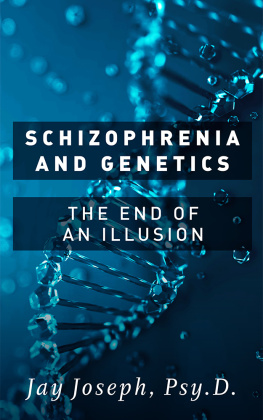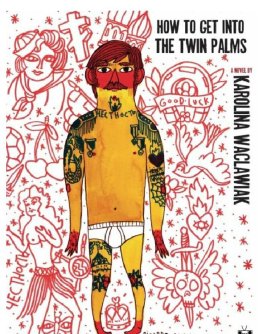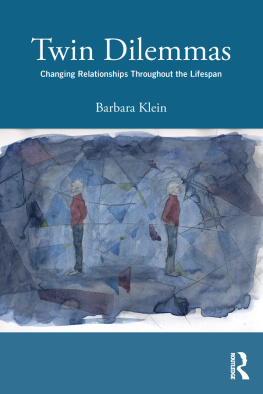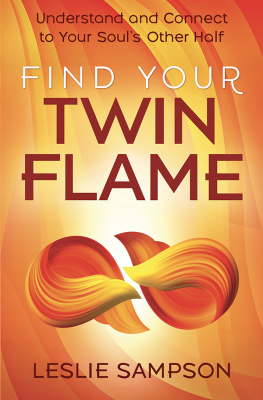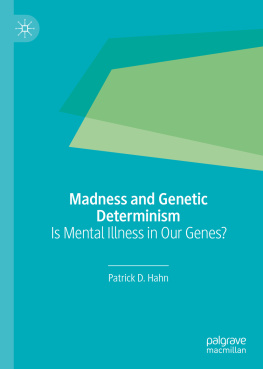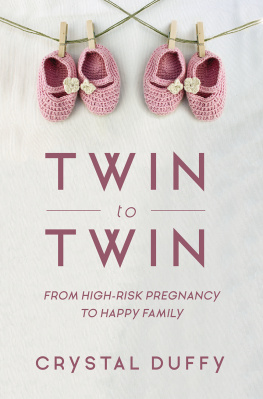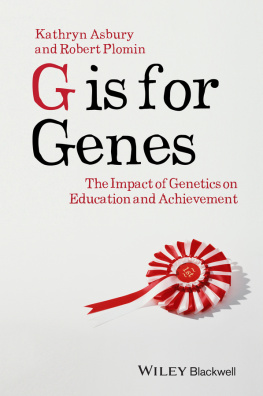
THE TROUBLE WITH TWIN STUDIES
A Reassessment of Twin Research in the Social and Behavioral Sciences
Jay Joseph

First published 2015
by Routledge
711 Third Avenue, New York, NY 10017
and by Routledge
27 Church Road, Hove, East Sussex BN3 2FA
Routledge is an imprint of the Taylor & Francis Group, an informa business
2015 Jay Joseph
The right of Jay Joseph to be identified as author of this work has been asserted by him in accordance with sections 77 and 78 of the Copyright, Designs and Patents Act 1988.
All rights reserved. No part of this book may be reprinted or reproduced or utilized in any form or by any electronic, mechanical, or other means, now known or hereafter invented, including photocopying and recording, or in any information storage or retrieval system, without permission in writing from the publishers.
Trademark notice: Product or corporate names may be trademarks or registered trademarks, and are used only for identification and explanation without intent to infringe.
Library of Congress Cataloging-in-Publication Data
Joseph, Jay.
The trouble with twin studies : a reassessment of the research/Jay Joseph.
pages cm
Includes bibliographical references and index. 1. Twins. 2. TwinsPsychology. I. Title.
HQ777.35.J67 2015
306.875dc23
2014024510
ISBN: 978-1-138-81306-9 (hbk)
ISBN: 978-1-315-74838-2 (ebk)
Typeset in Sabon
by Swales & Willis Ltd, Exeter, Devon, UK
CONTENTS
Many people have read that twin studies provide conclusive evidence that hereditary factors strongly influence IQ, personality, socially disapproved behavior, depression, schizophrenia, and most other types of behavior. Some people are undoubtedly skeptical of such claims, yet lack the arguments to be able to counter them. Based on my extensive knowledge of the twin studies of behavior literature, I decided to write this book to help supply such arguments in the context of the failure to discover genes for behavior at the molecular level.
While working on my dissertation on the genetics of schizophrenia in the late 1990s, I noticed that there werent many critical writings on twin research. This was surprising, since it seemed obvious to me that genetic interpretations of twin studies were based on theoretical assumptions that were not true, even as most textbooks reported that they provided solid evidence in favor of genetics. I also became aware that twin research had been used in the past in support of harmful and unjust social and political policies. This provided additional motivation to examine twin research and other types of genetic studies very closely, which has resulted in two books and various other publications since 1998. In this book I bring the total twin research critical analysis together in one place and in much greater detail, with a special emphasis on reared-apart twin studies, and I incorporate new and updated perspectives, analyses, arguments, and evidence.
I am a clinical psychologist examining the methods and publications of academic research from the outside looking in. Although many psychotherapists are influenced by behavioral genetic research, most lean towards environmentalism because they witness the harmful effects of having experienced adverse environmental experiences every day in their clinical work. Although I am not a twin researcher by trade, the twin research critique is based largely on logic and statistics, on an understanding of human psychology and human societies, and on the lives and psychological makeup of twins growing up and living in these societies. Like most readers, I have encountered twins in daily life and have observed how they interact with each other, and how they are treated. The key assumptions of twin research run counter to what most people intuitively understand about twins, their relationship with each other, and their social environments.
My original intention had been to write a book that could be understood by a larger audience, but as the work progressed I realized that this would be a more difficult task than I first imagined. At the same time, I have tried to cover the main topics and controversies as simply as possible. I have done my best to review and analyze the twin research literature and the molecular genetic literature in a manner that can be followed and understood by people unfamiliar with these fields. This is a book about the fallacies of twin studies and the failure to discover genes for human behavioral differences, and the relationship between the two.
Jay Joseph
16PF | Sixteen Personality Factor Questionnaire |
ADHD | attention-deficit/hyperactivity disorder |
APA | American Psychiatric Association |
BGA | Behavior Genetics Association |
CAB | Comprehensive Ability Battery |
CAP | Colorado Adoption Project |
CCTI | Colorado Childhood Temperament Inventory |
CNV | copy-number variant |
CPI | California Personality Inventory |
CTD | classic twin design |
CU | callous-unemotional behavior |
DNA | deoxyribonucleic acid |
DSM | Diagnostic and Statistical Manual of the American Psychiatric Association |
DZ | dizygotic (fraternal) twins |
DZA | dizygotic twins reared apart |
DZT | dizygotic twins reared together |
EASI | self-report personality questionnaire purporting to measure emotionality, activity, sociability, and impulsivity |
EEA | equal environment assumption |
GCA | general cognitive ability |
GCTA | genomewide complex trait analysis |
GWA | genomewide association |
GWAS | genomewide association study |
H-B | Hawaii Battery |
HGP | Human Genome Project |
IAAEE | International Association of for the Advancement of Ethnology and Eugenics |
MD | major depression |
MICTAR | Minnesota Center for Twin and Adoption Research |
MISTRA | Minnesota Study of Twins Reared Apart |
MMPI | Minnesota Multiphasic Personality Inventory |
MPQ | Multidimensional Personality Questionnaire |
MZ | monozygotic (identical) twins |
MZA | monozygotic twins reared apart |
MZT | monozygotic twins reared together |
ND | nicotine dependence |
PKU | phenylketonuria |
PTSD | post-traumatic stress disorder |
QTL | quantitative trait loci |
Next page

